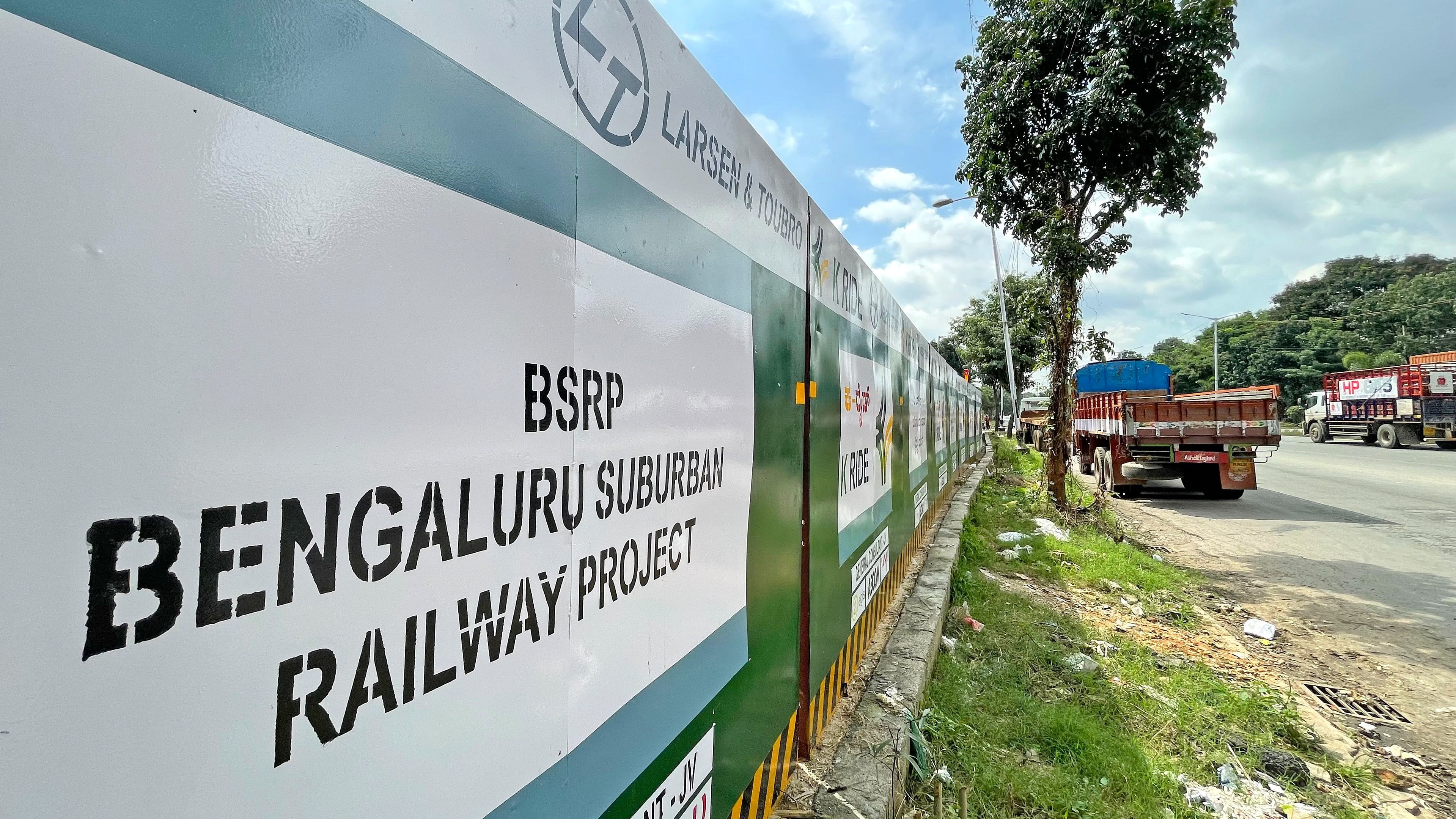
As per the environmental impact assessment report, the 149-km project will require felling 32,572 trees.
Credit: DH Photo
Bengaluru: Citizen activists and environmental experts on Friday called for transparency in tree-cutting for the Bengaluru Suburban Railway Project (BSRP).
K-RIDE organised a public consultation to discuss the project's environmental implications. Experts, members of the Technical Expert Committee (TEC) and social workers and officials from K-RIDE, BBMP, BDA, BWSSB and Bescom attended the meeting.
As per the environmental impact assessment report, the 149-km project will require felling 32,572 trees.
One the participants put the economic cost of the loss of green cover at Rs 7,279 crore, citing a Supreme Court-prescribed formula.
"If this method is adopted, no project can happen in the country. But the spirit of this cost calculation is that trees are precious. They deliver ecological services. Every single tree should be saved, irrespective of the species," he said.
Chiku Agarwal of the NGO Jhatkaa questioned the claim that BSRP was "affordable intra-city public transport", stating that documentation grants K-RIDE autonomy over fare decisions.
Attendees urged K-RIDE to make data on evaluating reduced road traffic levels public and the lack of credible data on the location and responsibility for compensatory afforestation, as well as the effectiveness of planting trees away from Bengaluru. Last-mile connectivity was another concern.
According to K-RIDE, of the 17,615 trees, 17,378 (98.65%) are Nilgiri and Acacia species. And of the 17,378 Nilgiri and Acacia trees, about 16,849 (97%) have a circumference of less than 60 cm.
It has quoted the Karnataka Forest Department's order dated March 10, 2017, that prohibits the planting of Nilgiri and Acacia trees due to their adverse environmental impacts.
Therefore, if 10 new trees are planted for every Nilgiri tree removed, the environmental impact assessment and mitigation plan will be discussed further.
Rajkumar Dugar of Citizens4Citizens requested an urgent and comprehensive review of trees planned to be cut, and the alignment and locations of facilities for which these need to be cut, 100% documentation and transparency in all relevant matters, including species and numbers, all relevant details of compensatory planting, maintenance, regular reviews with the planting agency regarding growth and survival of compensatory planting for at least three years from planting date, with the goal of over 90% survival rate at the end of three years.